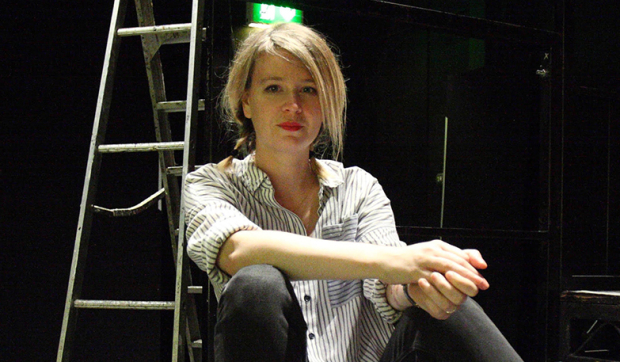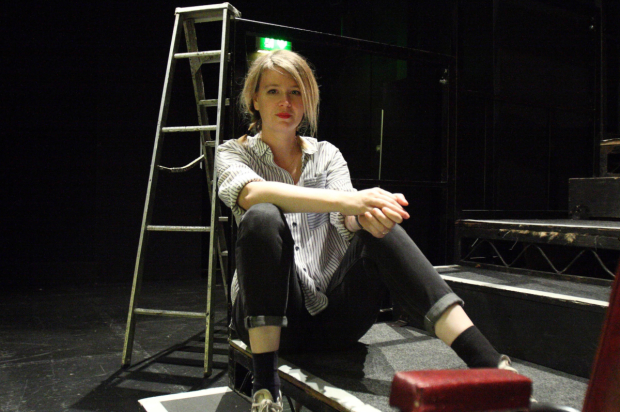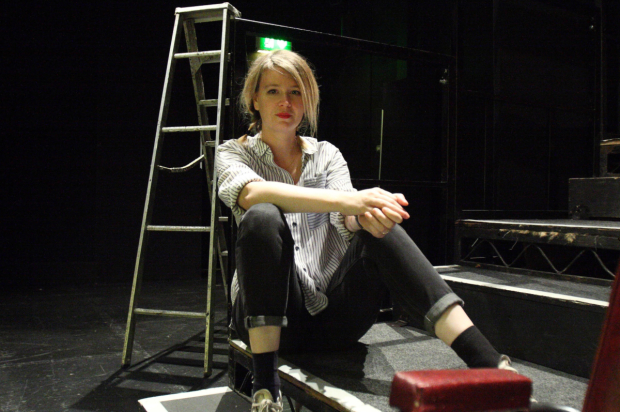Kate Wasserberg: 'Andrea Dunbar made Rita and Sue more than just victims'

© Catherine Ashmore
Like a lot of people, I saw the film of Rita Sue and Bob Too when I was pretty young. I think it was shown on Channel 4 every now and then. Andrea Dunbar’s story of a married man having a fling with two fifteen year-old best friends has gained cult status – something we’re really aware of from audiences coming to our current production, which tours until February including three weeks at the Royal Court.
But I hadn’t thought about the film much, and didn’t know the 1982 play it was based on, until I came to work on this revival with Max Stafford-Clark, who commissioned the play. Coming to it with adult eyes you’re shocked by the reality of it: the famous opening scene, in which Bob seduces both girls in his car while driving them home from babysitting, is textbook grooming.
Dunbar's recall of what people said and did was astounding
Written when she was 19, Rita Sue and Bob Too was Dunbar’s second play (and her second to be staged at the Royal Court!). When she wrote her first, The Arbor, at 15, she’d been pregnant and had miscarried. At 18 she had three kids and was living in a refuge. In practical terms, three plays and a movie barely changed her life: when she died of a brain haemorrhage at 29, she was living on the same Bradford council estate she grew up on. She didn’t really go to the theatre and, as Max tells it, when in London she was more interested in Madame Tussauds than rehearsals, though that’s hardly surprising in a teenager. When she was in attendance, she would bring a meticulous attention to detail. Much of her writing was semi-autobiographical, especially in The Arbor, and her recall of what people said and did was astounding.

© Richard Davenport
There’s a pernicious idea in our society that working class girls are more robust than middle class girls; that they grow up quicker and are less complicated. In Rotherham it was this mind-set that allowed the organised abuse of girls to continue for decades. Maybe some girls learn to act like grown-ups quicker – but that’s not the same thing.
She understood how people use language as a weapon, or a shield, or a peace offering
It was really important to me to bring that out. In rehearsal we interrogated everything the girls say. Rita and Sue have a lot of front, especially Sue, but like anyone they often don’t say what they really mean or really feel. They say things to please Bob, or to impress each other. They perform a maturity that isn’t there. That’s not to impose anything on the play. Andrea was an incredibly nuanced writer, up there with the best of them. She understood how people use language, especially when words are all they have: language as a weapon, or a shield, or a peace offering.
And she knew how to play with an audience. For all its grim awkwardness, that opening car scene is very funny. We’d have failed if audiences weren’t laughing uproariously at it, just as we’d fail if they didn’t feel uncomfortable two scenes later when Rita tells Bob her age.
But they’re more than victims, Rita and Sue. The play was in part Andrea’s love-letter to her own friendships, with the seemingly more worldly Sue as Andrea’s cipher. They’re memorable individuals: Sue handles hardship with a defiant humour; Rita has dreams of travelling and becoming a policewoman, both of which are quickly dismissed by Bob. The play’s brilliance and importance comes from the fact that these are special, brilliant girls, with minds and hearts like all of us. They deserve to be looked after better. They deserve to be treasured.
Rita, Sue and Bob Too runs at the Bristol Old Vic until 7 October. Then tours to Liverpool, Warwick, Oxford, Northampton, Doncaster, York, Derby, London, Huddersfield and Mold.
















